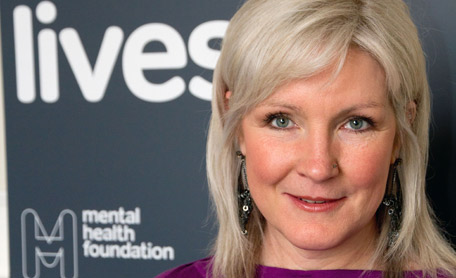Ms. Isabella Goldie and Dr. Antonis Kousoulis from the Mental Health Foundation have shared their thoughts with us on the new NHS plan.
1) Spending on mental health
“The NHS has committed to growing mental health spending as a proportion of the overall spending on the service, creating a new ring fenced local investment fund worth at least £2.3 billion a year by 2023/24.
We welcome not just the much needed increase in funding, but also the ring fencing. This acknowledges the historical under-investment in mental health – which the Foundation has pushed to change on several occasions. It also takes a step in the right direction to make mental health the strategic priority it should be, especially in the areas facing the deepest inequalities.”

Isabella Goldie – Director of Development and Delivery
2) Addressing health inequalities
“The plan commits the NHS to continue targeting a higher share of funding towards areas with high health inequalities than would have been allocated using the previous system of the ‘core needs formula’.
From April 2019, NHS England will introduce a more accurate assessment of need for community health and mental health services and will ensure that allocations formulae are more responsive to the greatest health inequalities and unmet need.
To ensure local programmes are focused on reducing health inequalities, the NHS will set out specific, measurable goals for narrowing inequalities, including those relating to poverty, perhaps the strongest determinant of poor health.
In 2019, all local health systems will be expected to set out what specific action they will take to reduce health inequalities by 2023/24 and 2028/29.
In collaboration with Public Health England and voluntary and community sector partners, NHS England intends to develop and publish a menu of evidence-based interventions for use at a local level to contribute towards the goal of reducing health inequalities, including for groups that the Foundation has worked with in co-production, such as people with learning difficulties, older people, and carers of people experiencing health problems.”

“Crucially, to access funding, local areas will be required to show they are appropriately focusing on those with the greatest need.
It is pleasing to to see that access to funding is attached to ensuring that health inequalities are addressed as mental health problems are not evenly distributed across society and that generally people living with mental health problems encounter poorer health outcomes more widely.”
On several occasions the Foundation has advocated for appropriate local action.

Dr. Antonis Kousoulis – Assistant Director of Research and Development
3) A new focus on prevention
“The plan brings a new focus on prevention – the strongest advocacy point we have pushed in the Foundation. There is a welcome emphasis on:
*children’s health (including, a new model which will deliver an integrated approach across health, social care, education and the voluntary sector)
*perinatal mental health (including expanding access to care for women with perinatal mental health problems, as well as support services for couples and partners)
These points can certainly do much to ensure our next generation will have better mental health outcomes. Diversifying the support that is available to people – of all ages – and enabling digital care can add to this optimism.”
To read the their full blog please CLICK HERE

The ‘Mental Health Foundation’ need your help
“The NHS Long Term Plan is good progress in moving towards a prevention-focused approach that the Mental Health Foundation has been advocating for many years. We couldn’t have had this much impact without your help, but we don’t want to stop now.
We need to capitalise on these positive steps and ensure everyone has the tools to look after their mental health, and their social circumstances allow them to thrive. Again, we need your help to do this.” Please consider a donation today.

